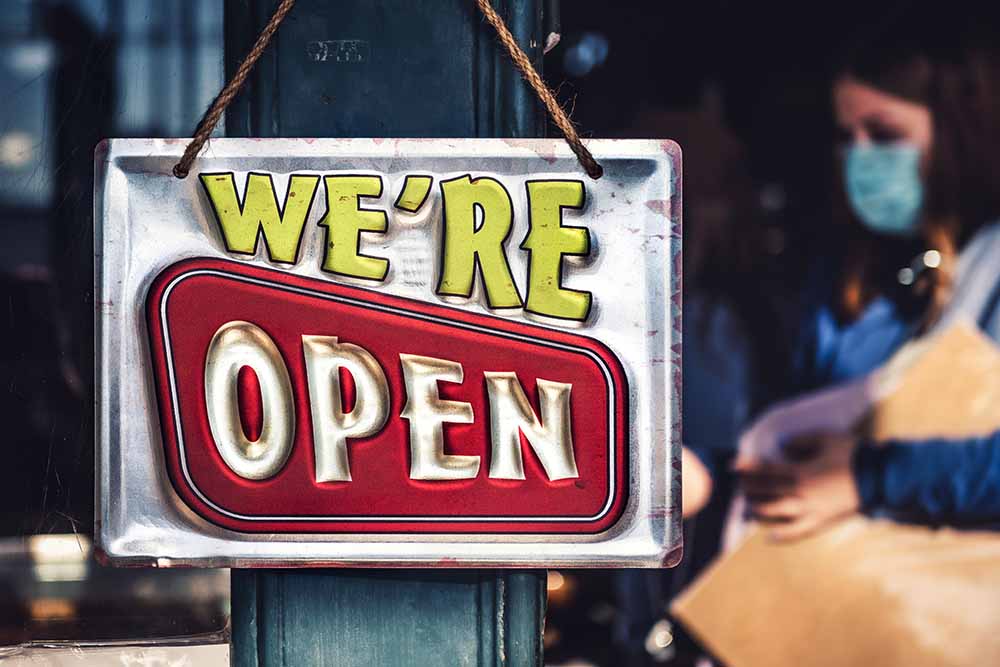The COVID-19 crisis led to significant travel restrictions in the world and in Canada. The country has totally or partially closed its national borders to tourists and non-essential travellers. Within Canada, travel between provinces has been restricted. Indeed, some provinces such as New Brunswick, Prince Edward Island, Newfoundland and Labrador also banned non-essential travel or all travel between provinces. In other provinces like British Columbia and Ontario, it was advised not to travel without essential purposes.
The problem is if people cannot travel, tourism cannot flourish. Indeed, COVID-19 strongly impacted the economic sector.
In 2019, tourism activities accounted for about two per cent of Canada’s GDP and generated about 750,000 jobs. But for Destination Canada, tourism is linked to one in 10 Canadian jobs, so 1.9 million jobs. Tourism contributes to a large part of the Canadian economy. 99 per cent of businesses in Canada’s tourism sector are SMEs. Therefore, it is more difficult for them to manage a loss of profits. As a result, 2020 losses to Canada’s tourism sector are the worst on record. Destination Canada also states that the economic impact on tourism is more significant than that experienced after 9/11, SARS and the 2008 economic crisis combined.
As reported by Statistics Canada in 2020: “in March 2020, the number of international arrivals to Canada from other countries fell by 54.2% from February 2020, the largest single monthly drop since 1972. Most hotels were empty: by the first week of April 2020, the hotel occupancy rate was below 20% across Canada.” The impact on jobs is huge. The total paid employment in the tourism industry for April and May 2020 has declined by almost 60 per cent from 2019 levels, more than double the trends observed in non-tourism industries. The effect on the Canadian economy can be a loss of 1.2 per cent to 1.7 per cent in Canada’s GDP and could have adverse effects on one-third to half a million jobs.
The statistic of Destination Canada shows that the tourism sector workforce is principally composed of women, youth and immigrants. Indeed, women account for 70 per cent of the workforce in the travel service sector, 60 per cent in accommodation and 57.7 per cent in food and beverage services. Moreover, 30 per cent of the jobs in tourism are held by Canadians aged 15 to 24, well above their share of the total labor force, at 12.7 per cent. Immigrants represent 26 per cent of the tourism labor force. In comparison, they stand for 23 per cent of the Canadian Labour Force.
The situation in the tourism sector also threatens the economy of the First Nations. Indigenous tourism was a growing sector before the crisis helping the economic development of the First Nations. Based on the estimations of the Indigenous Tourism Association of Canada: “all suggest that sector-specific growth has been faster than the overall Canadian tourism sector, both in terms of GDP and employment.” COVID-19 seriously hinders the perspective of growth of this sector and, in some cases, its survival. Considering the economic difficulties of the First Nations, this trend can take some worrying proportions.
The progressive lift of restrictions allows for a return to normal, but border closures are still partially in place. The opening of borders to fully vaccinated people is a good start, but some problems are still present. With most western countries having just between 40 per cent and 65 per cent of their population fully vaccinated, many people are still unvaccinated and will not be able to travel. Moreover, the tourism sector needs visibility in the future: if restrictions come back, it could destroy the trust of the businesses in the area and could have a disastrous effect on their survival.
A transparent, trustable and long-term position of authorities is needed.
Alexandre Massaux is a research associate at the Frontier Centre for Public Policy.
Photo by Tim Mossholder on Unsplash.



